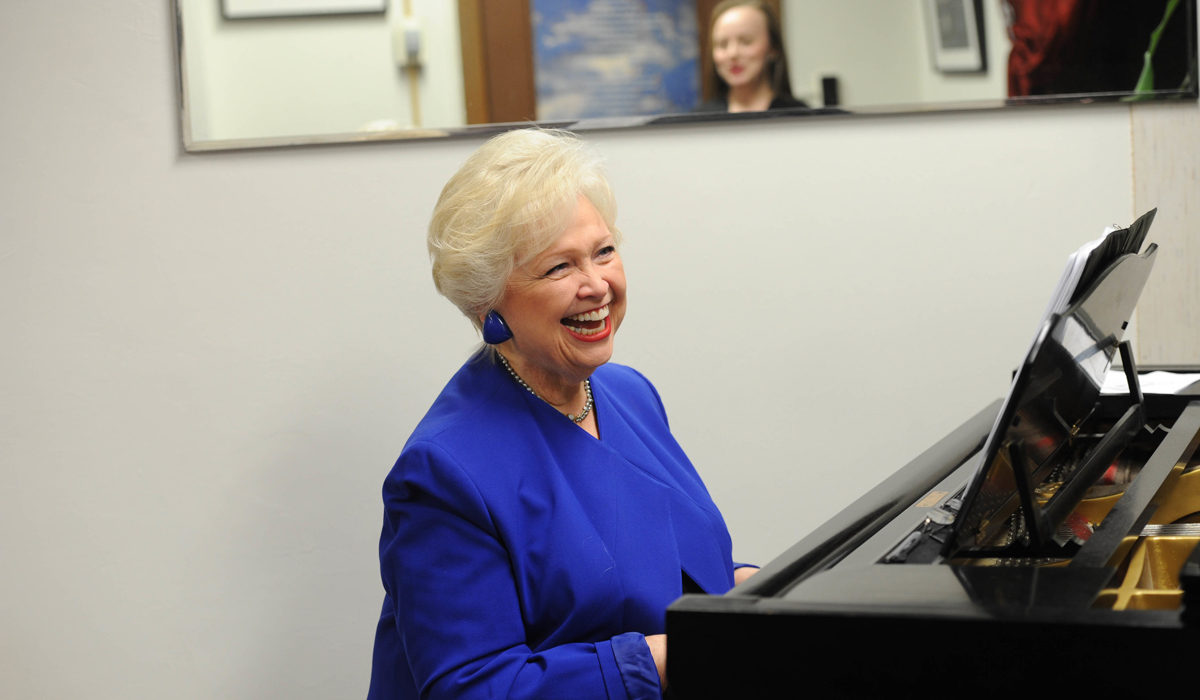

The sound of two sopranos singing drifts from a second-floor office of Ward Hall down the stairs and into the hallway below. Inside the office, Sharon Christman encourages graduate student Molly Allen to shift into a higher register as she practices a song from the Broadway operetta “The New Moon.”
"Who are we to say that it must be done a certain way? We’re here for our students, they’re not here for us."
Allen gives it a try. “Oh, that’s perfect,” says a beaming Christman. They chat for a few minutes about an upcoming recital and then Allen packs up her scores and heads out the door, running into another student who’s waiting for her lesson with Christman.
The walls of Christman’s office, with its scarlet drapes and large potted plants, are lined with photos of her in costume for opera roles as Rosalinde and the Queen of the Night. At that time, Christman was performing with the Metropolitan Opera, earning rave reviews, and raising two small children in New York.
Now she coaches the next generation of singers as opera advisor and head of the Voice Division at Catholic University’s Benjamin T. Rome School of Music, where she gives private lessons, teaches the physiology of the voice, and spends many a night in the audience at Ward Recital Hall or Hartke Theatre, listening to her students perform.
Before a performance, she gathers her students backstage. They form a circle, hold hands, and say a prayer. Christman, who is Presbyterian, says she wants the students to understand that their voices are a gift from God.
She started teaching master classes at Catholic University in 1989. Since then she has developed an open-studio policy, which enables students to study with her, but also to take lessons with other faculty members who have an expertise in a foreign language or a particular vocal technique. That’s usually not the case at other music schools.
“Every voice is different,” says Christman. “Who are we to say that it must be done a certain way? We’re here for our students, they’re not here for us.” This year there are 34 graduate students and 27 undergraduates in the vocal division plus a few who are minoring in voice. Having worked with hundreds of students, she says she has “gleaned” the ability to hear a voice for the first time and recognize the potential.
For her students, singing is part of their identity, she notes. “It’s my job to let that voice develop.” Christman says that students have cried after nailing a high note that’s been out of reach for several years. She says, “When they cry, I cry.”